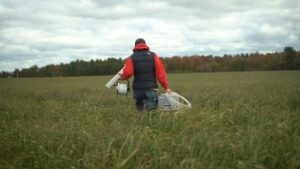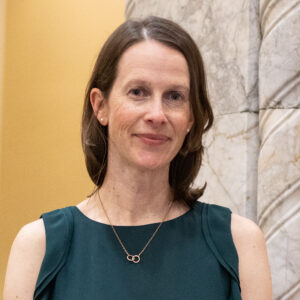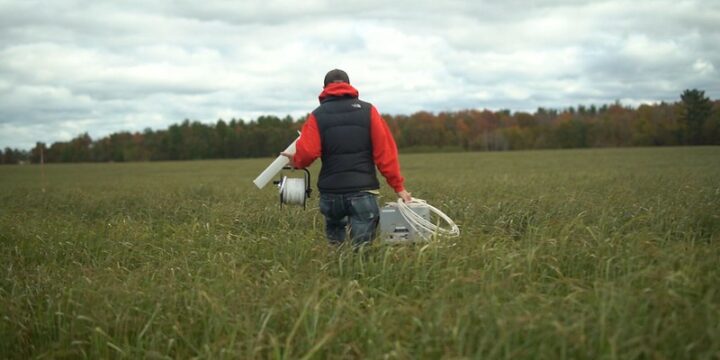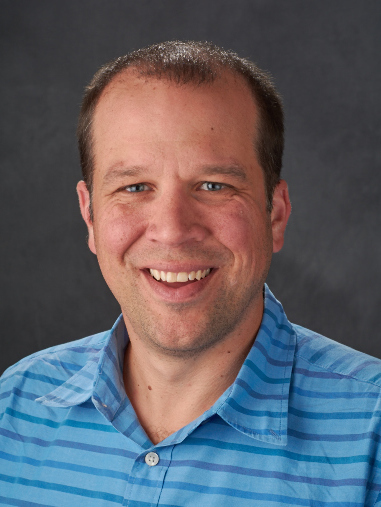
The age of Earth’s water has been estimated at 4.5 billion years. While 60 pales in comparison to that astounding age, the work of the National Institutes for Water Resources network — celebrating its sexennial anniversary in 2024 — is critical for the resource’s stewardship.
On July 17, 1964, President Lyndon B. Johnson signed the Water Resources Research Act to establish a water resources research institute in each state and Puerto Rico. The program was later expanded to include the District of Columbia, Guam and the U.S. Virgin Islands.
“The Congress has found that we have entered a period in which acute water shortages are hampering our industries, our agriculture, our recreation and our individual health and happiness,” Johnson said.
The 54 institutes are charged with undertaking multidisciplinary water research. They are a federal-state partnership, with federal funds coming through the U.S. Geological Survey and providing dollars to support two tracks, a core grant to each individual program and also a pot of money to annually use for national research competitions to address timely challenges.
In Wisconsin, the state’s statutorily funded Groundwater Coordinating Council also supports the University of Wisconsin Water Resources Institute. The WRI is a program of the Universities of Wisconsin and is housed on the flagship campus in Madison.
At the time of the centers’ enactment, Johnson’s statement continued, “The new centers will be concerned with municipal and regional, as well as national water problems. Their ready accessibility to state and local officials will permit each problem to be attacked on an individual basis, the only way in which complex characteristics of each water deficiency can be resolved.” Johnson also noted that centers, such as Wisconsin’s, “will enlist the intellectual power of universities and research institutes in a nationwide effort to conserve and utilize our water resources for the common benefit.”
Decades later, WRI continues to embody those 1964 presidential words. It has funded more than 140 research projects, including marquee issues like naturally occurring radium in southeastern Wisconsin. WRI research on those aquifers informed the first-ever binational approval of Great Lakes water withdrawals by a community outside of the basin. Waukesha secured that permission in 2016 because its own supplies were dwindling and contaminated.
Other WRI work has explored the long-term balance between water users in the Central Sands Region of Wisconsin. The scarcity of water in the area creates a tug between those wishing to use it for agriculture and those seeing reduced surface water levels, meaning sporting and recreational opportunities could be compromised.

More contemporary research priorities have been examining PFAS in the state’s waters, the effect of climate change on resources and assessing the extent and impact of pathogens in drinking water.
WRI Associate Director Jennifer Hauxwell said, “In a state so enriched with water, we have no shortage of water challenges, including water quality challenges statewide due to excessive nutrients or contaminants, water quantity challenges related to scarcity in some parts of the state and flooding in other parts. WRI’s investment in research helps us better identify and understand these challenges and evaluate management solutions to these challenges. We have a long history of working closely with Wisconsin communities to address their challenges and to connect researchers to real-world Wisconsin water issues.
“We are so fortunate to have had the opportunity to serve as this bridge for the past 60 years and look forward to the next 60,” she concluded.
WRI also recruits and trains the next generation of water leaders. Throughout its history, more than 1,250 students have been trained by working on research projects.
Further, WRI has established a transformative fellowship program. It partners with state agencies to mentor post-graduates who provide cutting-edge knowledge while gaining skills early in their careers. One of the current fellows is Sarah Gravlee. She works in water science policy for the Wisconsin Department of Health Services. She said, “I like working at the intersection between water and public health. I’ve enjoyed fielding questions from the public about water contaminants, sitting in on meetings about newly identified water contamination, and assisting in projects focusing on reducing Wisconsin’s environmental health hazards. I’ve learned a lot.”
Also learning a lot have been the three, and counting, cohorts of undergraduate summer research scholars. It’s a program called the Freshwater@UW Summer Research Opportunities and links researchers who have been funded through WRI, and other grant programs, to competitively selected students from across the nation.

“We are incredibly proud of the students and the work supported by WRI these past 60 years. At the same time, we know that water issues remain critical throughout the state. We look forward to supporting innovative and impactful research in Wisconsin,” WRI Interim Director Christy Remucal said.




